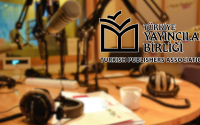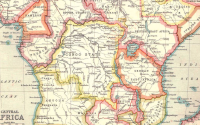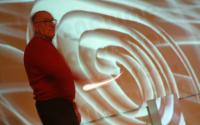12 November 2005Anne GearanWashington Post
A U.S.-backed Mideast democracy and development summit ended in rancor Saturday despite adoption of two initiatives that are part of President Bush's push to expand political freedom in a region dominated by monarchies and effective single-party rule.
A draft declaration on democratic and economic principles was scuttled after Egypt insisted on language that would have given Arab governments greater control over charitable and good-government organizations.
US Secretary of State Condoleezza Rice talks to journalists during a joint press conference with Iraqi Prime Minister Ibrahim al-Jaafari, in Baghdad's heavily fortified Green Zone, Friday, Nov.11, 2005. Rice invited Sunni Arabs to speak their minds in new voting in Iraq, arguing during a surprise visit Friday that "differences can be a strength." (AP Photo/Ahmad al-Rubaye, pool) (Ahmad Al-rubaye - AP) var technorati = new Technorati() ; technorati.setProperty('url','http://www.washingtonpost.com/wp-dyn/content/article/2005/11/12/AR2005111200327_Technorati.html') ; technorati.article = new item('Mideast Democracy Summit Ends in Rancor','http://www.washingtonpost.com/wp-dyn/content/article/2005/11/12/AR2005111200327.html','MANAMA, Bahrain -- A U.S.-backed Mideast democracy and development summit ended in rancor Saturday despite adoption of two initiatives that are part of President Bush\'s push to expand political freedom in a region dominated by monarchies and effective single-party rule.','ANNE GEARAN') ; document.write( technorati.getDisplaySidebar() ); |
Secretary of State Condoleezza Rice did not speak at the close of the conference, which was hosted by the Group of Eight economic giants and Arab nations but which was largely a U.S. initiative.
Rice used the start of the conference earlier Saturday to criticize political repression in Syria and call for the release of political prisoners there.
"We continue to support the Syrian people's aspirations for liberty, democracy, and justice under the rule of law," Rice said.
Participants in the Forum for the Future session announced a $100 million fund to promote economic enterprise in a region where populations are growing and unemployment is often high for young men. The fund includes $50 million from the United States, with contributions from Egypt, Morocco and Denmark.
"For democracy to achieve lasting and sustainable success, it must also be nurtured by a vibrant economy and an ever growing middle class," Rice said at the outset, noting that some 50 million to 100 million young people will enter the job market across the Middle East and neighboring countries in North Africa over the next five to 10 years.
The conference also launched a $50 million foundation aimed at promoting democracy and political reform in the Middle East. Both initiatives were shepherded by Deputy Assistant Secretary of State Liz Cheney, the vice president's daughter, who accompanied Rice on a Mideast trip that also includes stops in Iraq, Saudi Arabia, Israel and the West Bank.
Many Middle East nations are wary of Bush's second-term democracy agenda in the region, and some organizations the administration has tried to engage are reluctant to take State Department funding.
Egyptian delegates left the gathering early, after discussions on the final statement broke off. U.S. officials said the sticking point was a passage that pledged "to expand democratic practices, to enlarge participation in political and public life and to foster the roles of civil society, including NGOs," and to widen women's political and economic participation.
Egypt wanted the statement to stipulate that non-governmental organizations, or NGOs, be "legally registered," under each country's laws, a requirement that U.S. officials said would defeat the purpose of the statement.
Non-governmental organizations is a term used by the State Department and others to describe both humanitarian aid organizations such as the Red Cross and lesser-known groups that promote social and political agendas.
Bahrain's Foreign Minister, Sheik Khalid bin Ahmed Al Khalifa, told reporters the declaration will come up again, perhaps at another Forum for the Future gathering next year.
"We decided we will come back to it one day," he said.
Groups covered in the disputed language are increasingly active in Egypt, which held its fist multiparty elections this year but remains under the firm control of President Hosni Mubarak.
Egypt's ruling party secured the most seats in the first stage of parliamentary balloting last week that was seen as a test of Mubarak's pledges of electoral reform.
According to official but incomplete results announced Thursday by the election committee, the ruling National Democratic Party won 24 seats and the Muslim Brotherhood took three.
The opposition said there were widespread irregularities at the polls, which were hailed by official state media as Egypt's freest balloting in decades.
"Thugs are in control, low turnout and outrageous forging incidents," complained a headline in al-Wafd newspaper, mouthpiece of the liberal party of the same name.
Rice chose Egypt as the site for a widely noted June speech promoting democracy. Her visit there was postponed in a dispute over the jailing of a democracy activist, who was later released.







